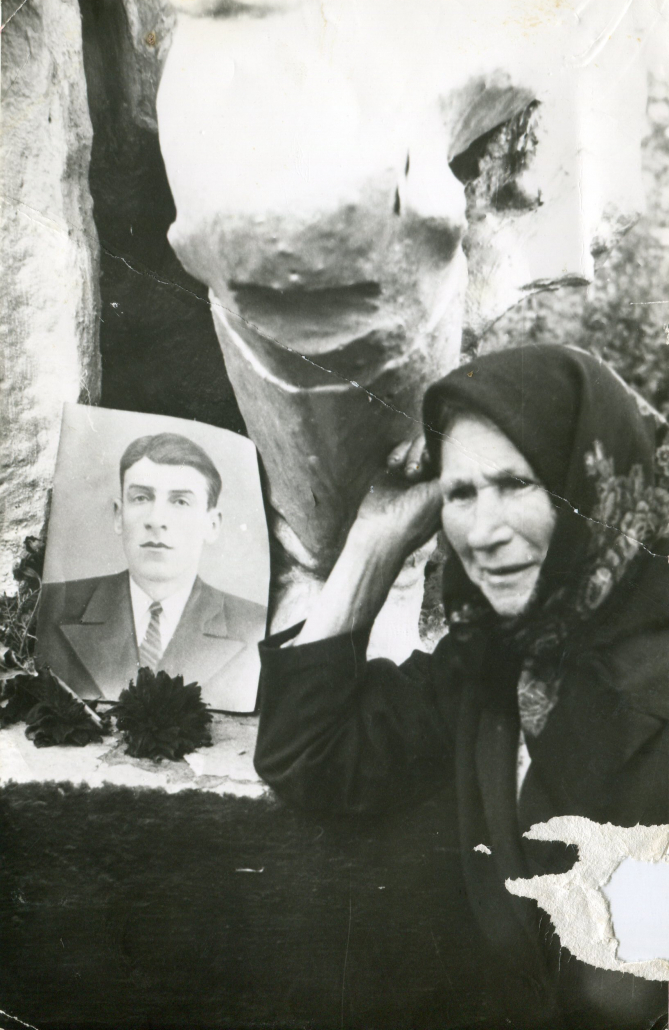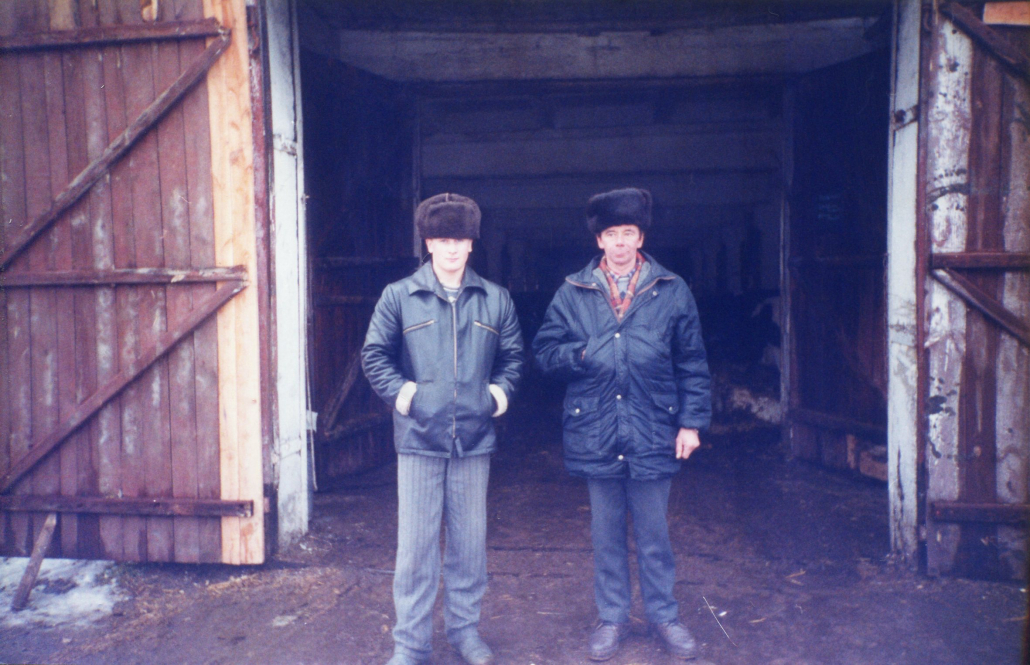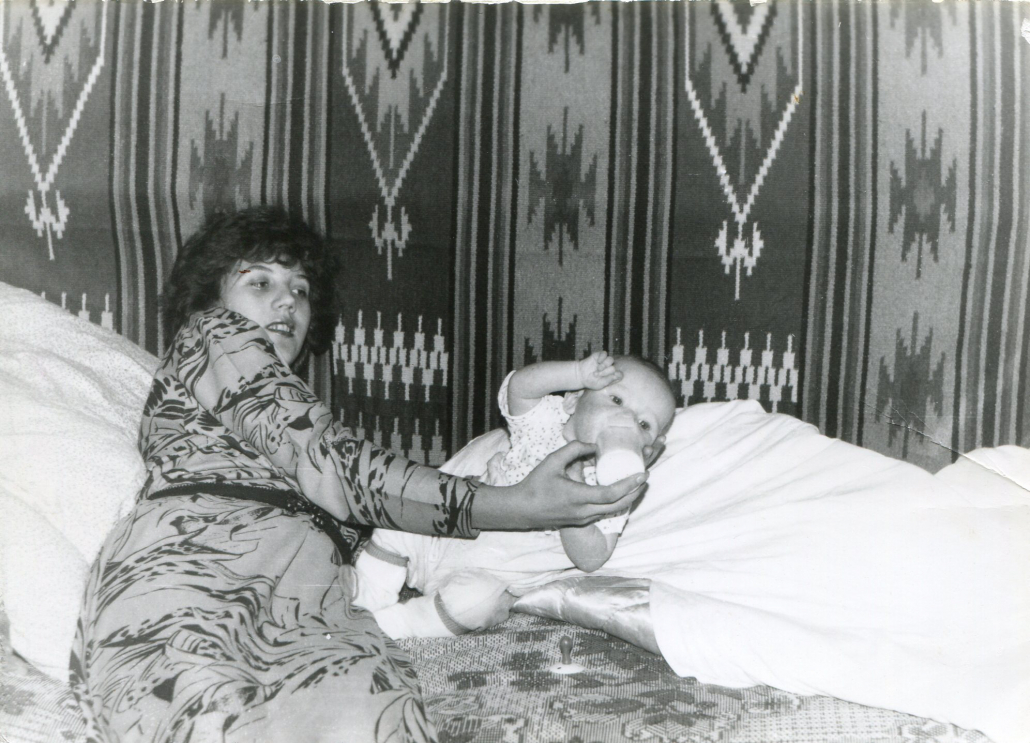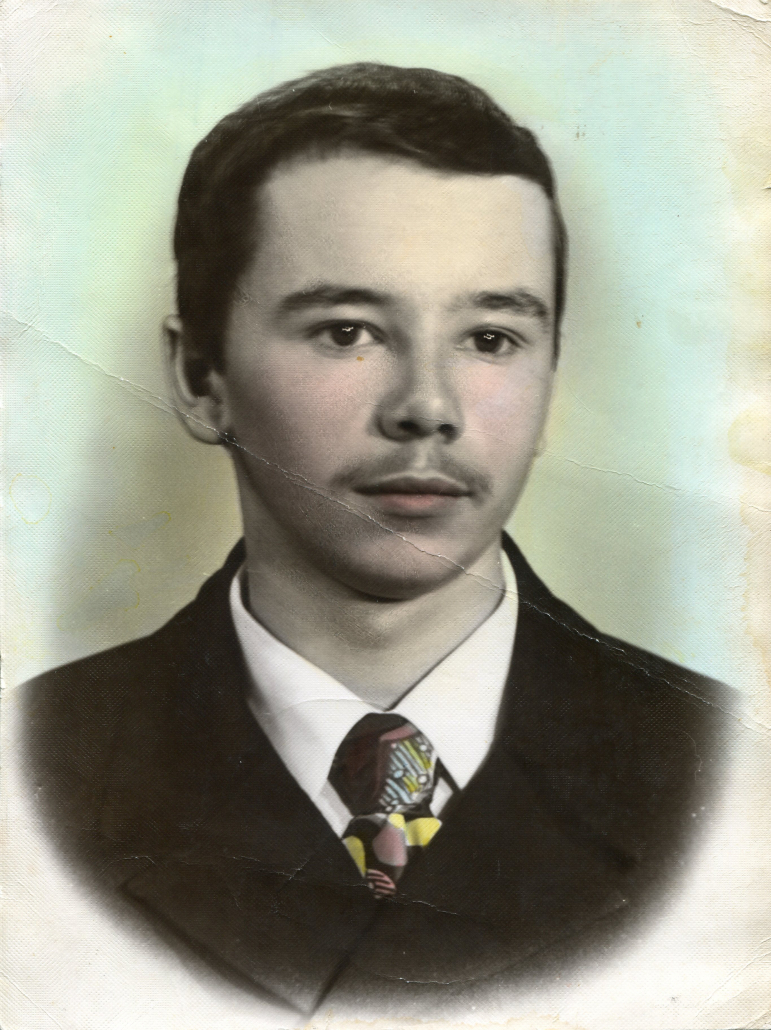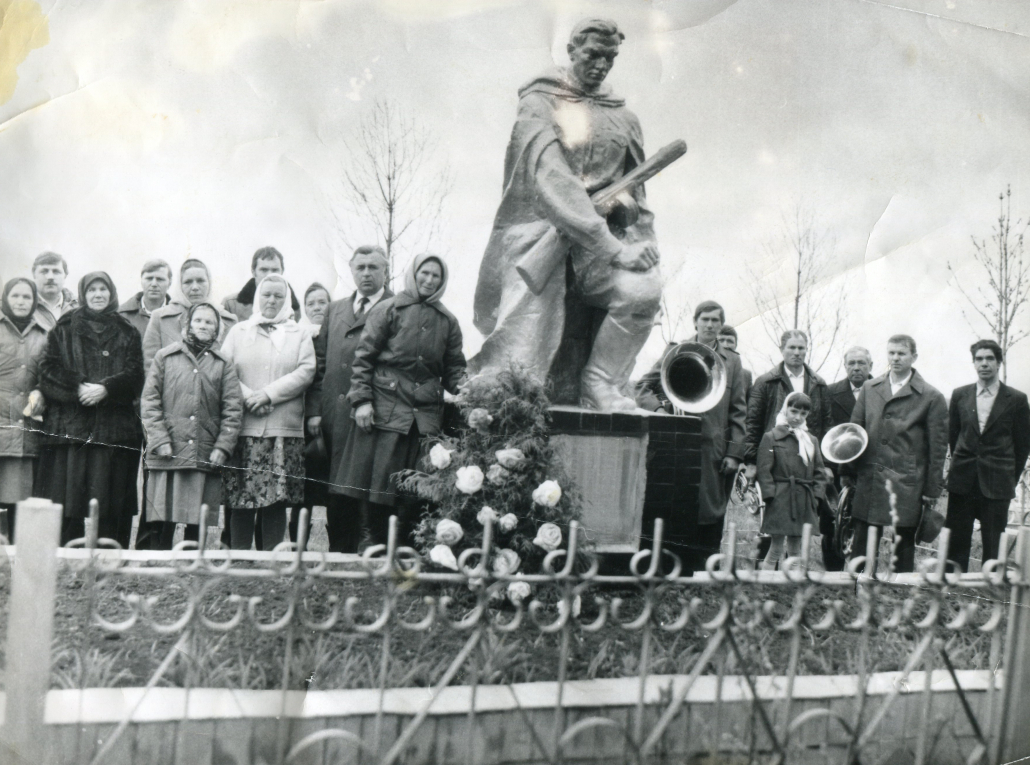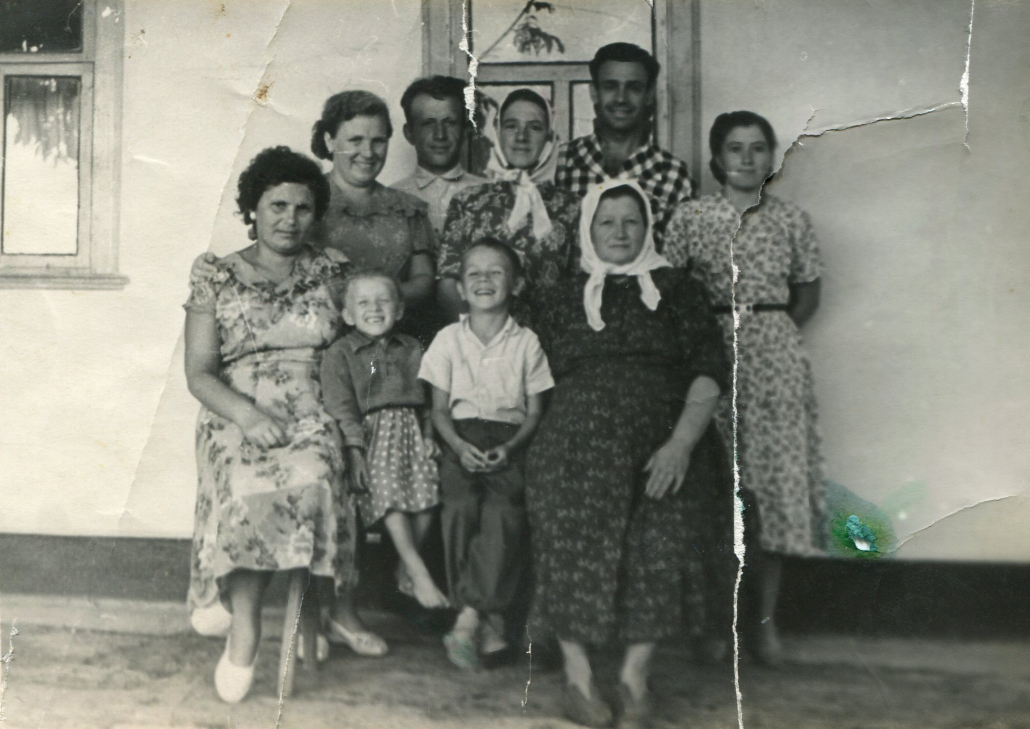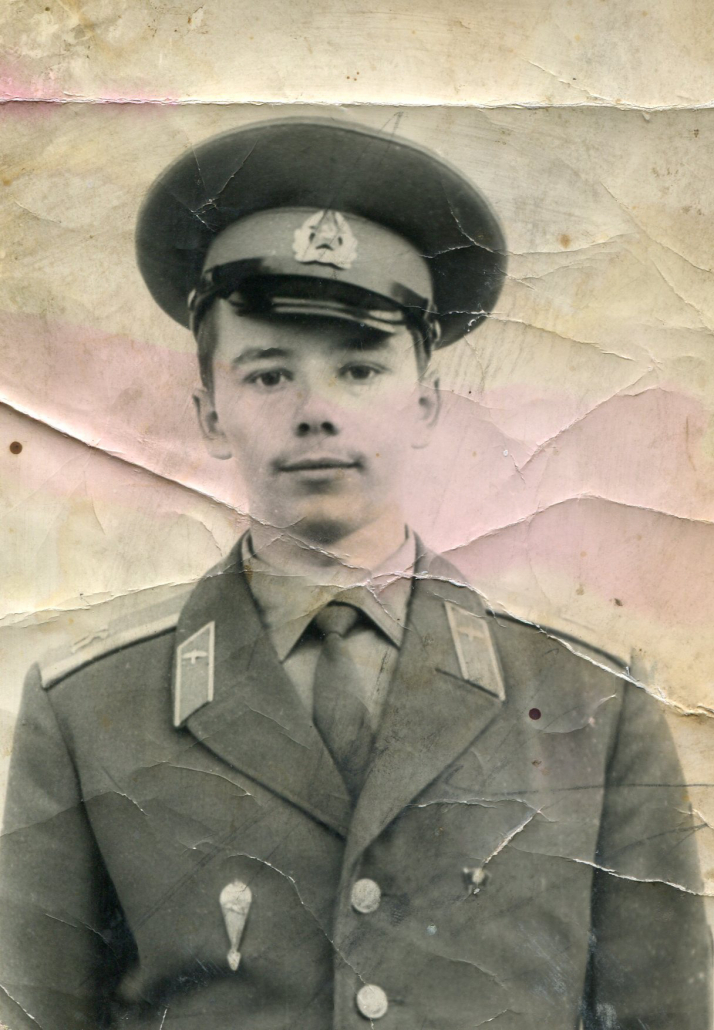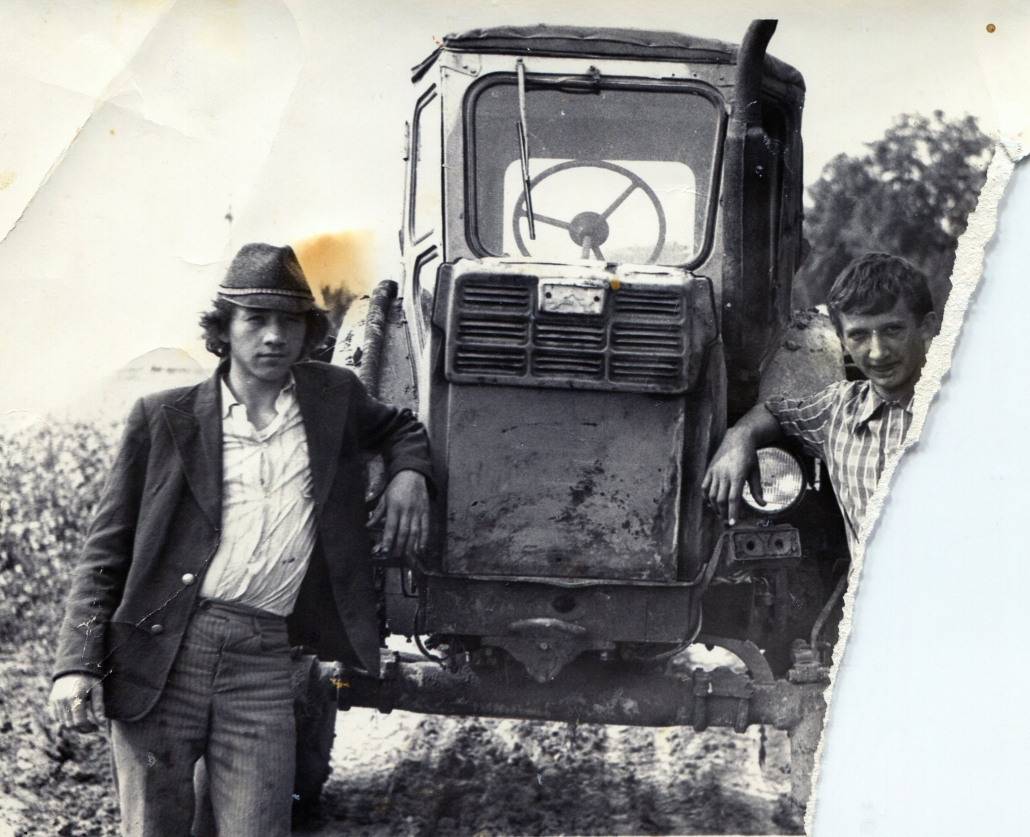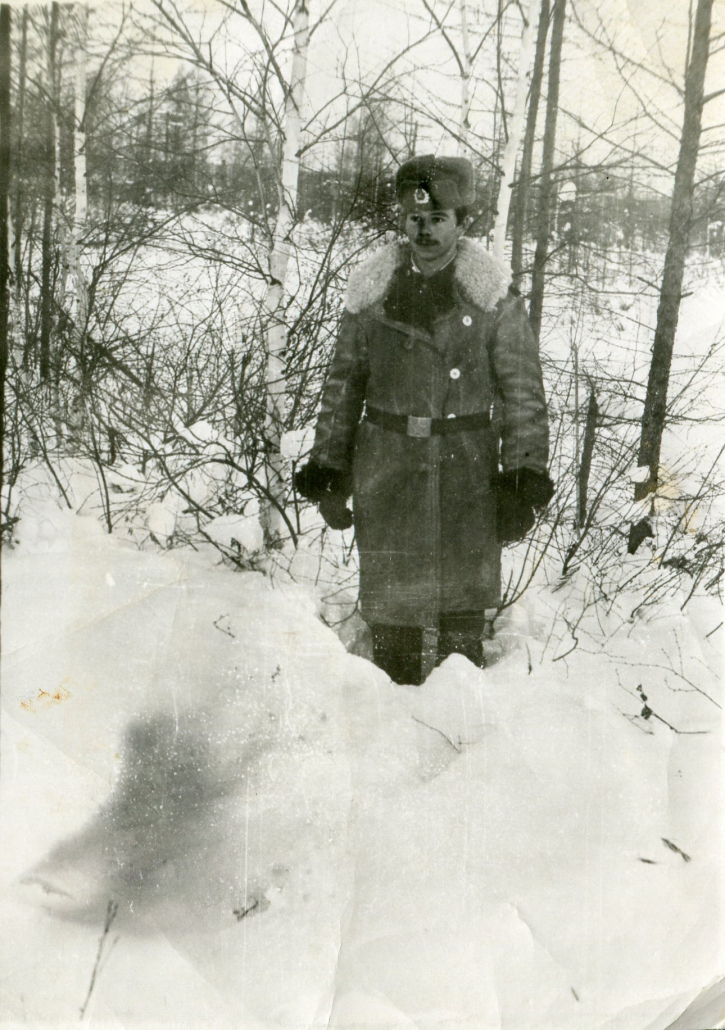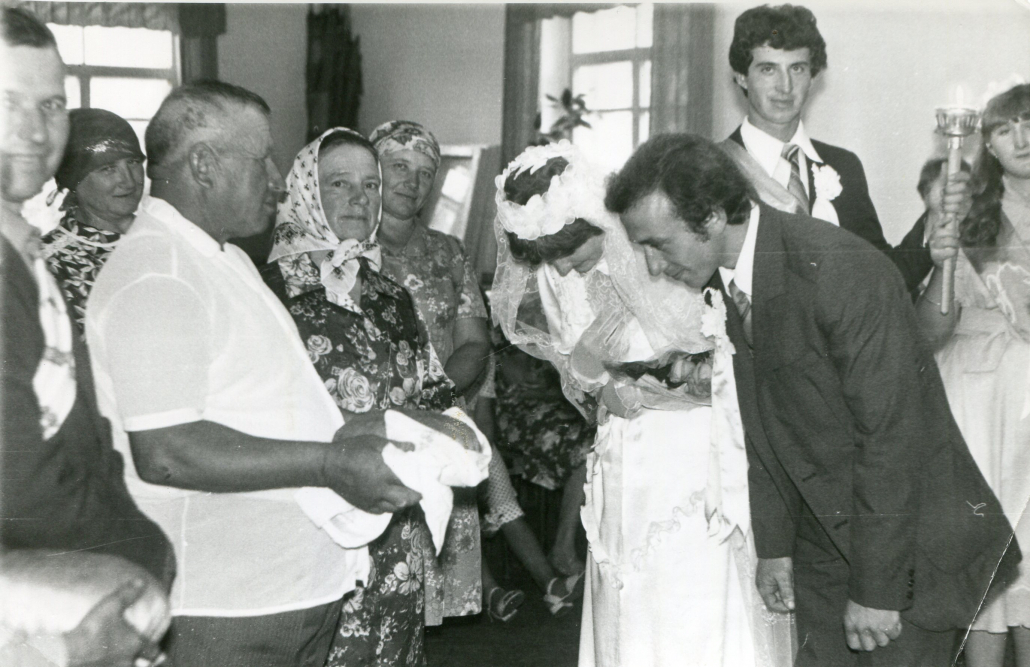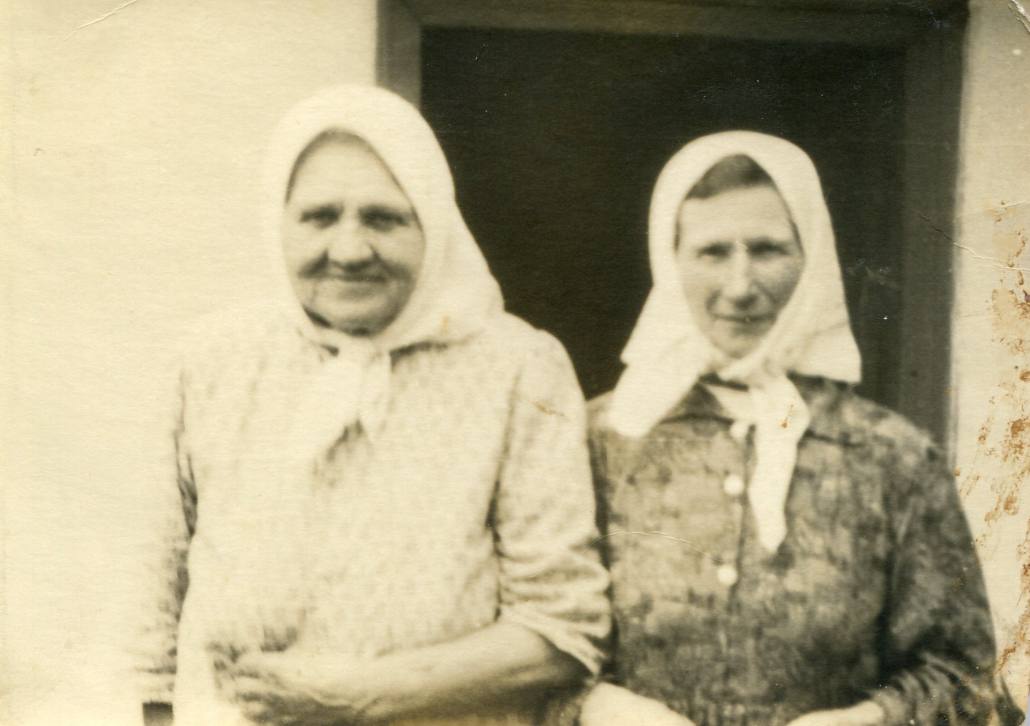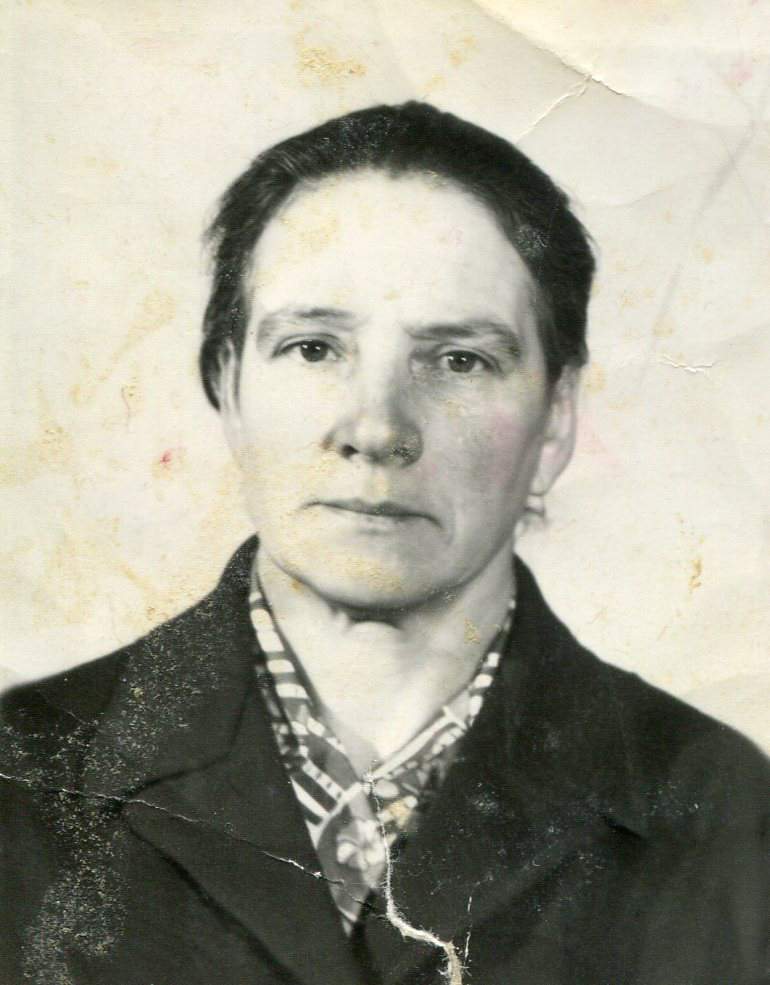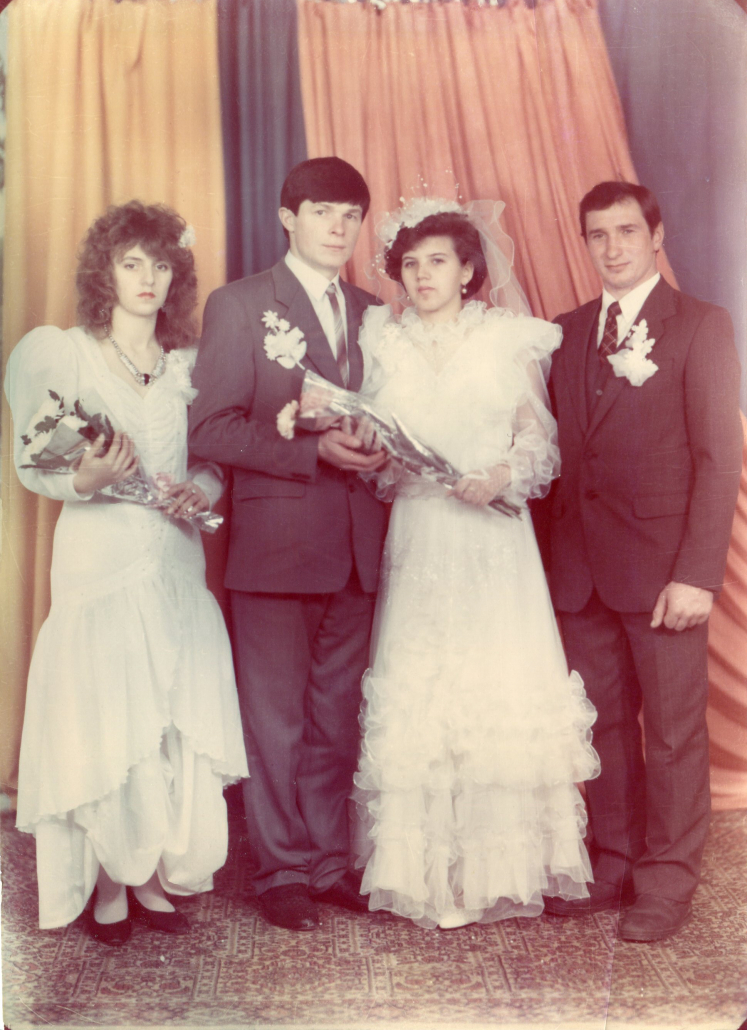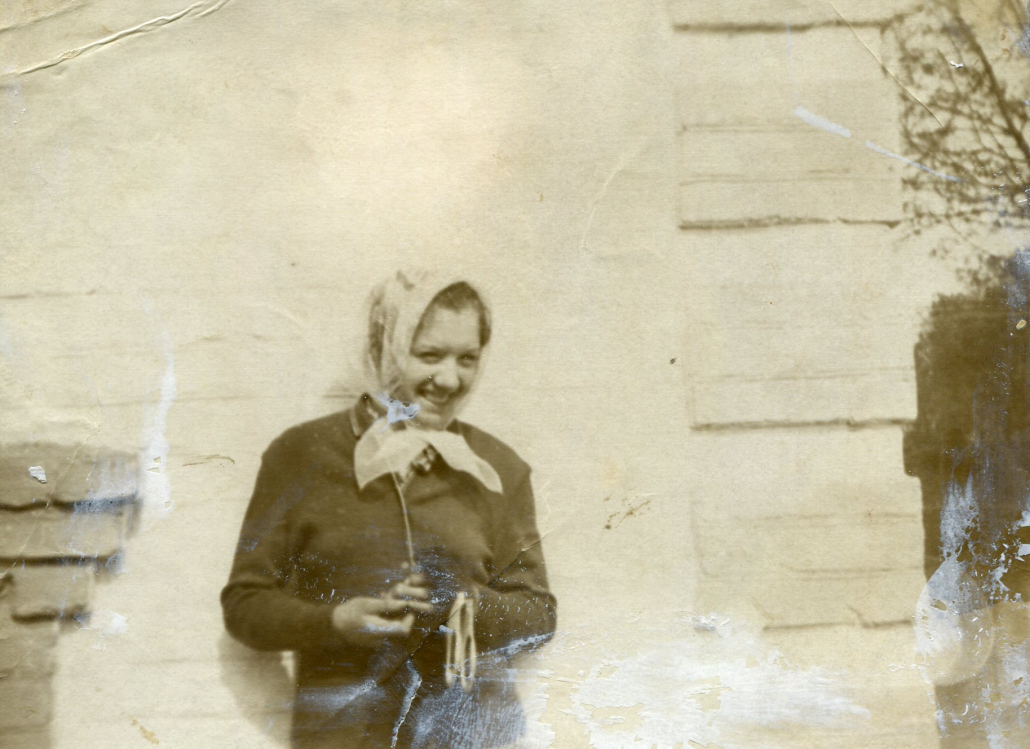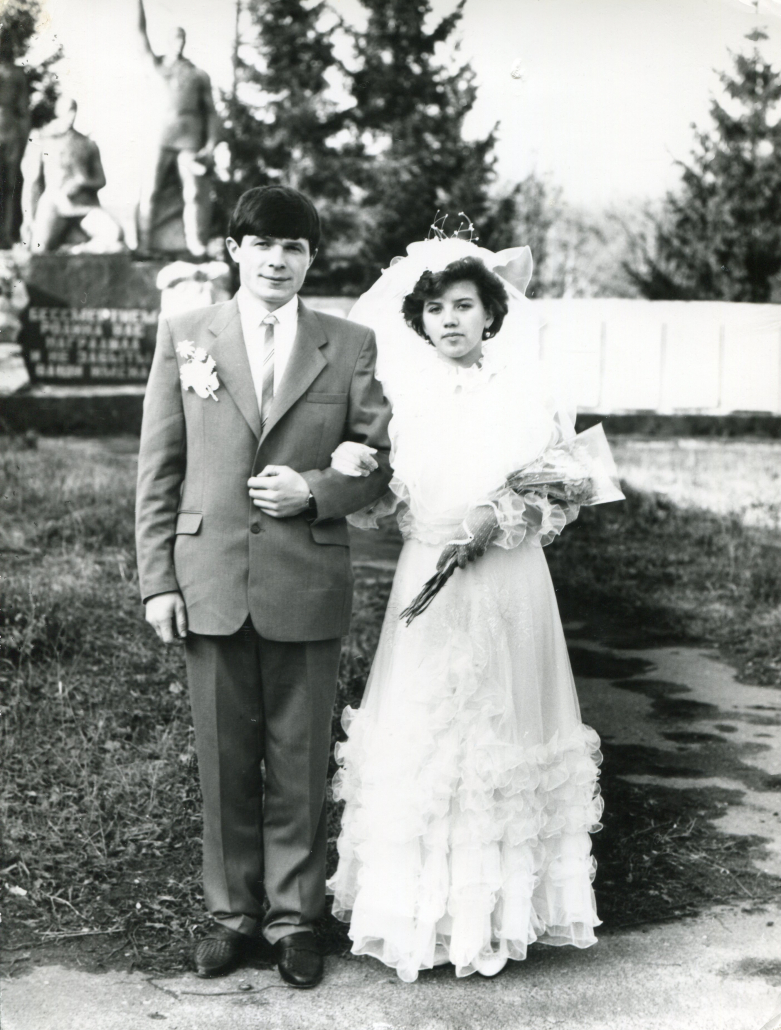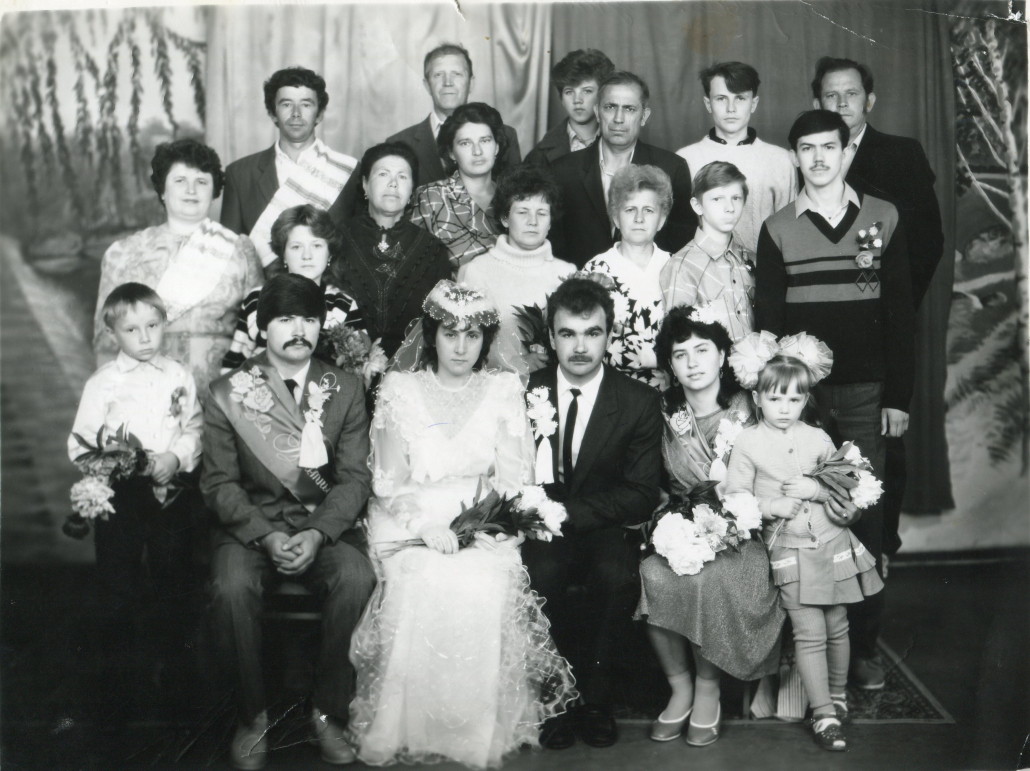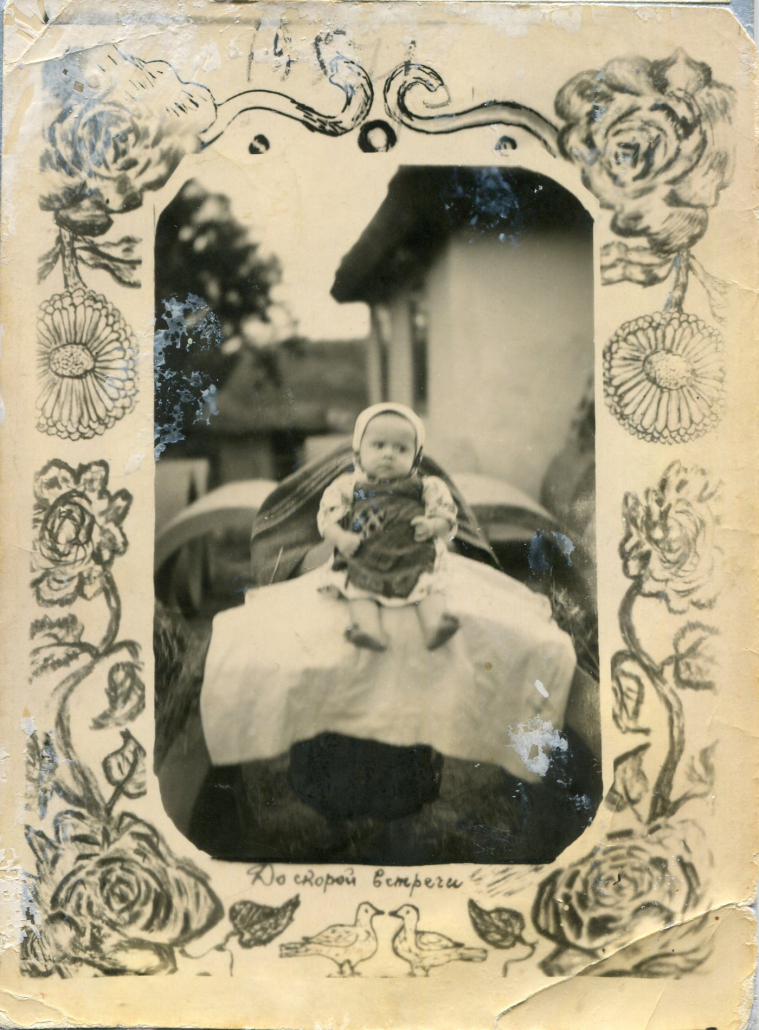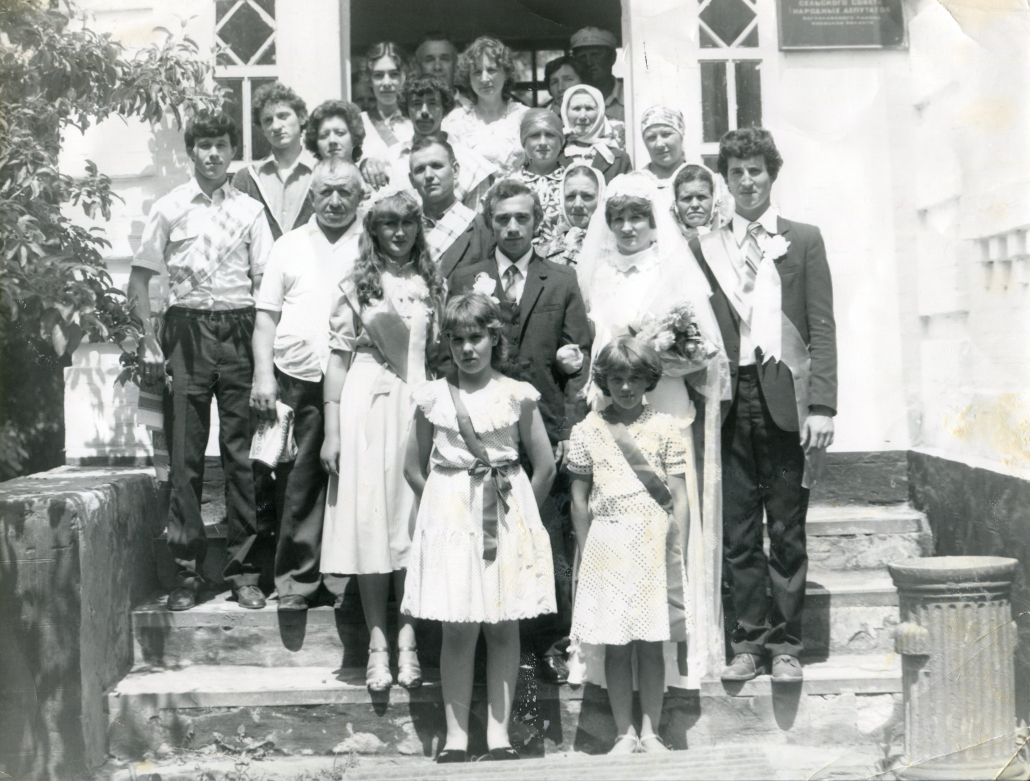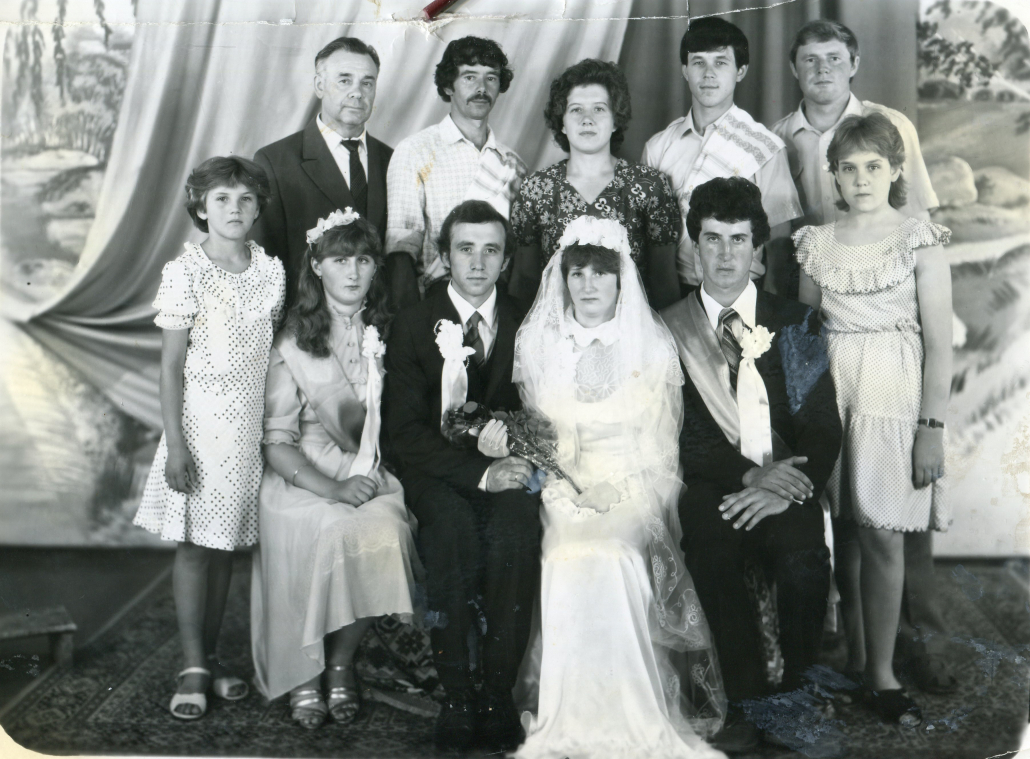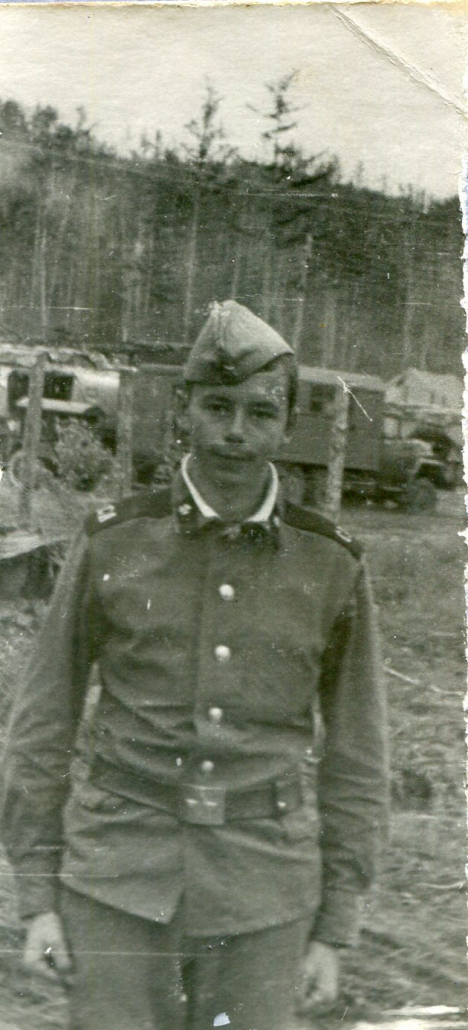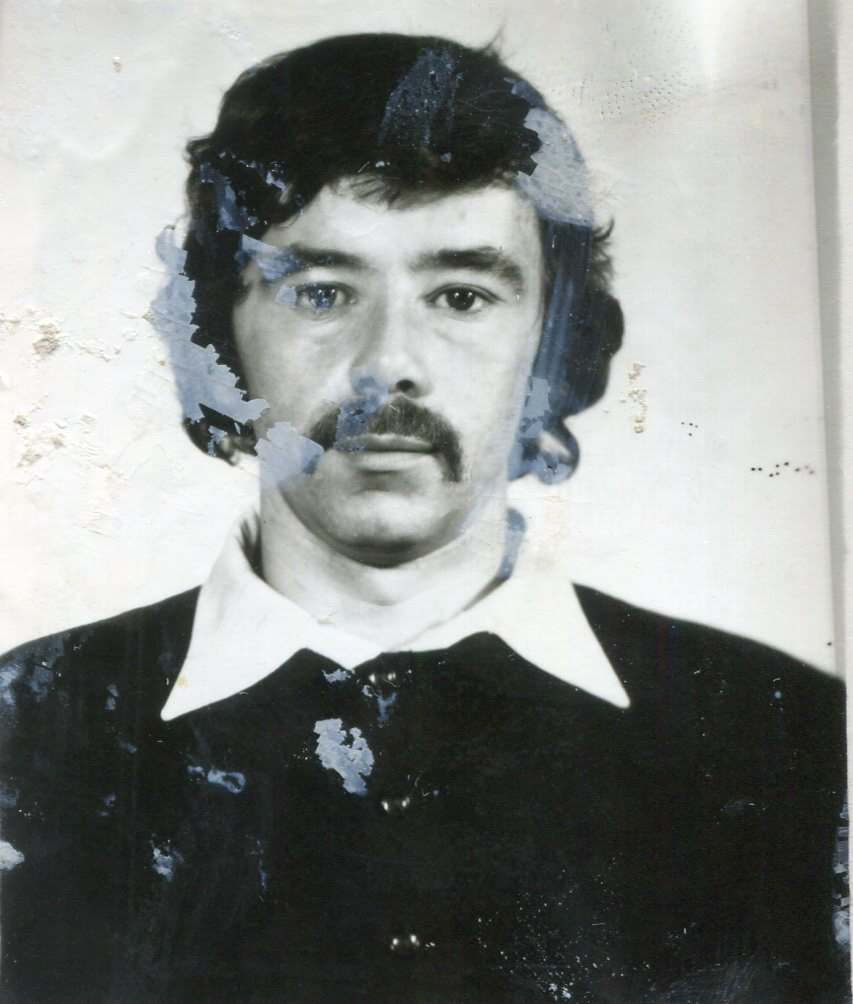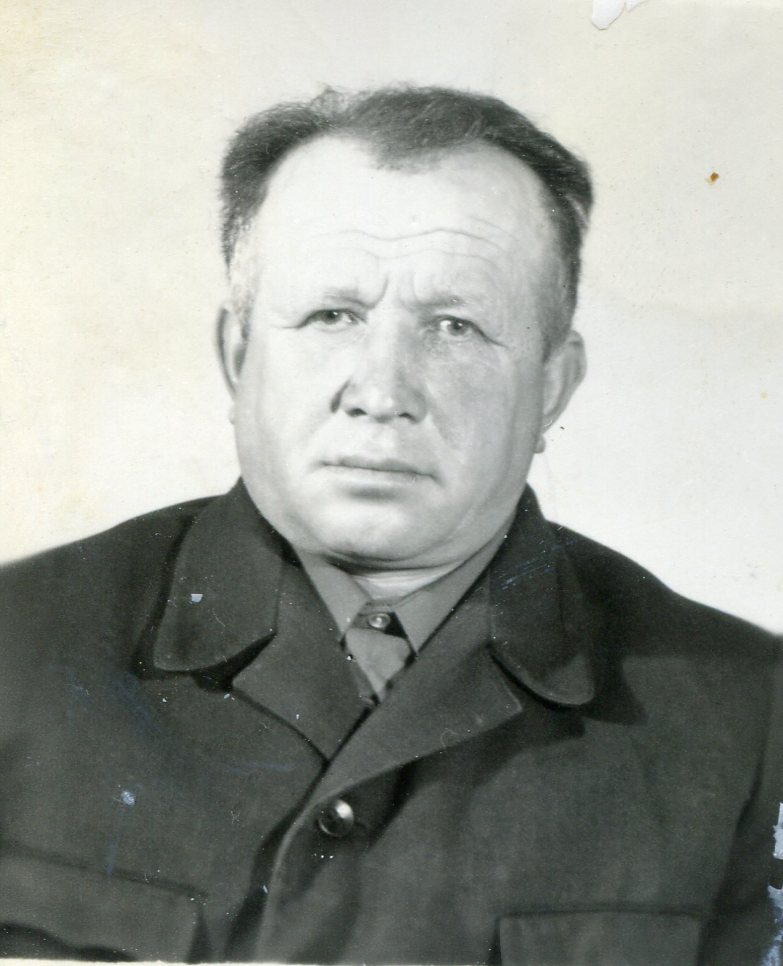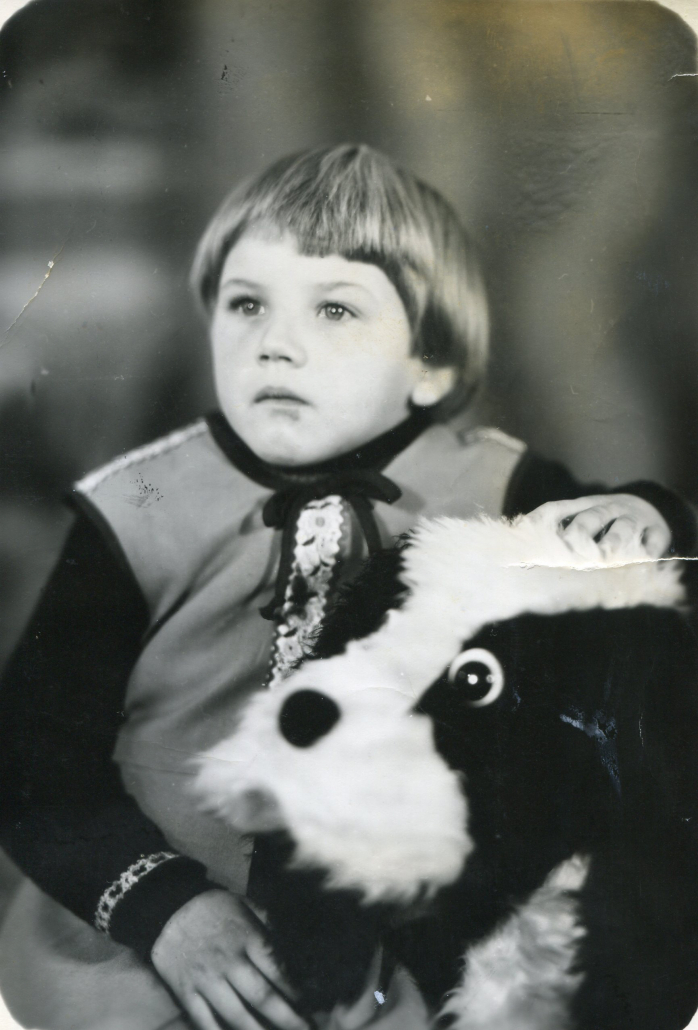Every year, our marriage is better

I have always believed that marriage is a lifelong commitment. The goal is to make the marriage a “fortress for well being“, “to be even as a single soul“, “two helpmates, two intimate friends, who should be concerned about the welfare of each other“. My criteria for success has always been that I would be together with my wife “in all the worlds of God”…. and that the “union will endure; for this real oneness is a gleaming out of the love of God.” I was, and continue to be, incapable of accepting anything less. I work to achieve the goal of my marriage– not an easy task in the second half of the 20th century, and the first half of the 21st.
I started visiting Guta, the childhood home of Svitlana, during the summer of 2008. She was living in a neighbouring village, but her life was centred on her mother and her childhood home. A colleague at work Natasha Illina, helped me to research places outside of Kyiv and suggested a visit to Guta. For a couple of years I visited and tried to buy a property, only succeeding in the fall of 2009. Svitlana lived in another Ukrainian village, “married” to an alcoholic, teaching school, raising her son, and except for the fact that her husband was an alcoholic, happy with her life. My first contact with her was initiated by a Baha’i friend of mine, Vladimir Shilov. I started in 2011 to develop the facilities for “The Virtues Project in Guta”. My deadline was the summer school organized by the NSA to be held in Guta. Vladimir and his wife often visited to help with the planning of this summer school.
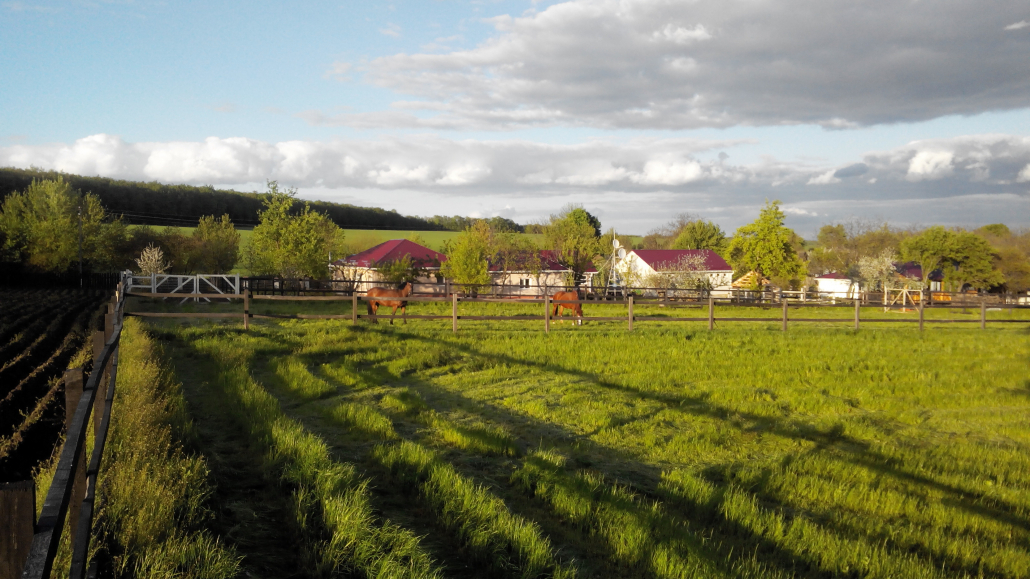
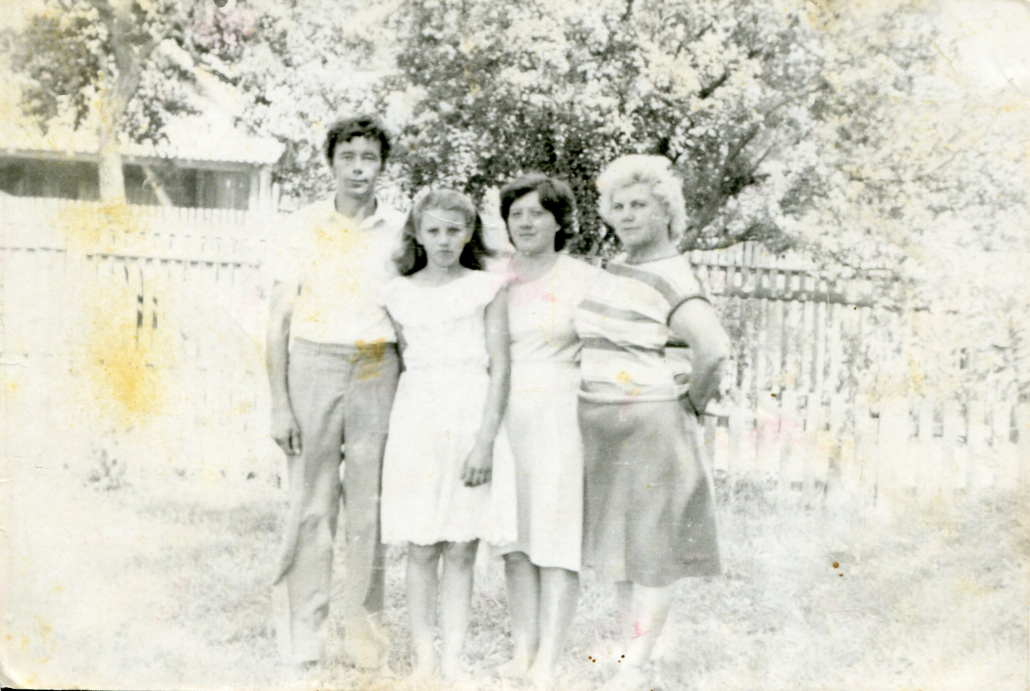
So the spring and summer of 2011 I was building the stables and main hall, fencing the fields, and renovating the bunkhouse. A lot was happening and I needed help and my closest neighbors were interested to make some money. Since 2009, my mother-in-law, Svitlana’s mother, was helping me look after my home and propery. When Beverly lived in Guta in the summer/fall of 2010, I remember her saying how much she liked Nadia, and how much she respected the cleanliness and orderliness of her house. As for Beverly, Nadia and everyone in Guta were alerted to keep an eye on Beverly, because she took long walks in the woods, and would get lost. I was living in Kyiv and travelling frequently, and I didn’t want to hear stories of the lost American woman. I didn’t want to hear about her sleeping in the woods, lost and hungry. Beverly is “significant other” in this memoire, from high school. I was really happy to see her in Guta.
So the spring and summer of 2011 I was building the stables and main hall, fencing the fields, and renovating the bunkhouse. A lot was happening and I needed help and my closest neighbors were interested to make some money. Since 2009, my mother-in-law, Svitlana’s mother, was helping me look after my home and propery. When Beverly lived in Guta in the summer/fall of 2010, I remember her saying how much she liked Nadia, and how much she respected the cleanliness and orderliness of her house. As for Beverly, Nadia and everyone in Guta were alerted to keep an eye on Beverly, because she took long walks in the woods, and would get lost. I was living in Kyiv and travelling frequently, and I didn’t want to hear stories of the lost American woman. I didn’t want to hear about her sleeping in the woods, lost and hungry. Beverly is “significant other” in this memoire, from high school. I was really happy to see her in Guta.
My Russian daughter Marta spent summers with me since 2005-2006, starting when she was 3 years old. In 2011 we needed to spend a lot of time in Guta because of the construction. Who would take care of Marta, when I was working in Kyiv? At that time, a Baha’i woman was doing my housekeeping and helping with Marta in Kyiv. So, I ask her to work in Guta and she came with her daughter– a daughter the age of Marta. I was grateful for her help and I trusted her with Marta.
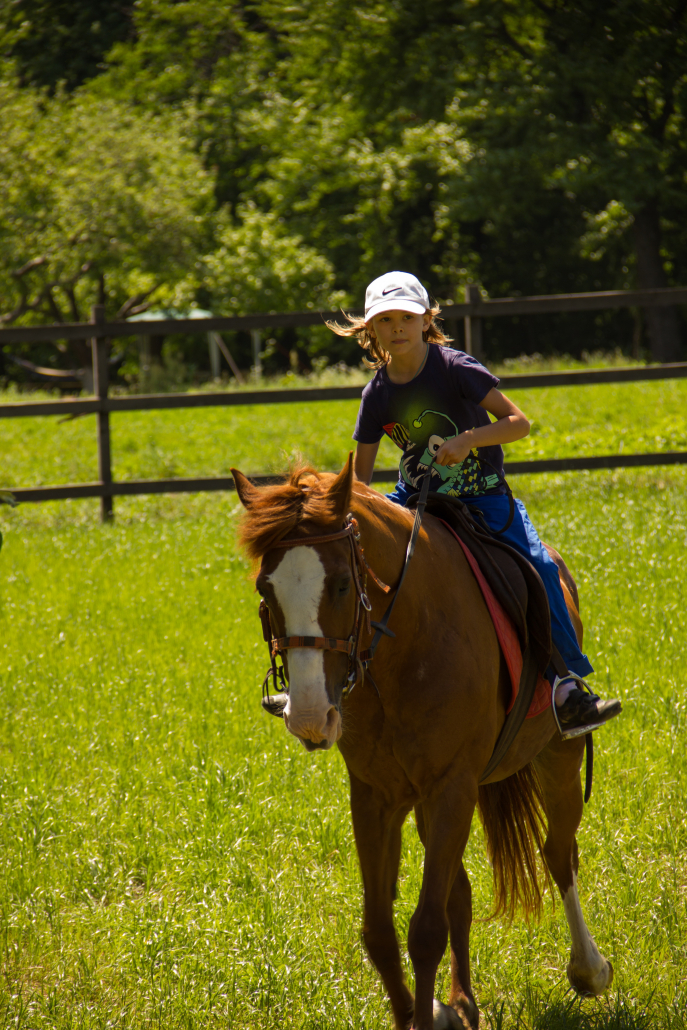
As I was making plans for the summer, Vladimir Shillov came to me and suggested Svitlana to look after Marta in Guta. Vladimir liked Svitlana a lot, and once told me that I should pay attention to her. But, at that point in time, I was too busy with my office and the construction and Marta. I did listen to Vladimir’s suggestion, met Svitlana, “interviewed” her to tutor Marta using Baha’i materials. But I didn’t know her at all and I thought that she only spoke Ukrainian.
Svitlana’s tutoring of Marta, teaching virtues from Baha’i materials, is how I became acquainted with Svitlana. I often joked with her at the time, because she really was too up tight with this American neighbor to feel comfortable in my presence. Finally, one day toward the end of the summer, I asked her to return after her dinner and chat. After that, a little of the formality began to disappear.
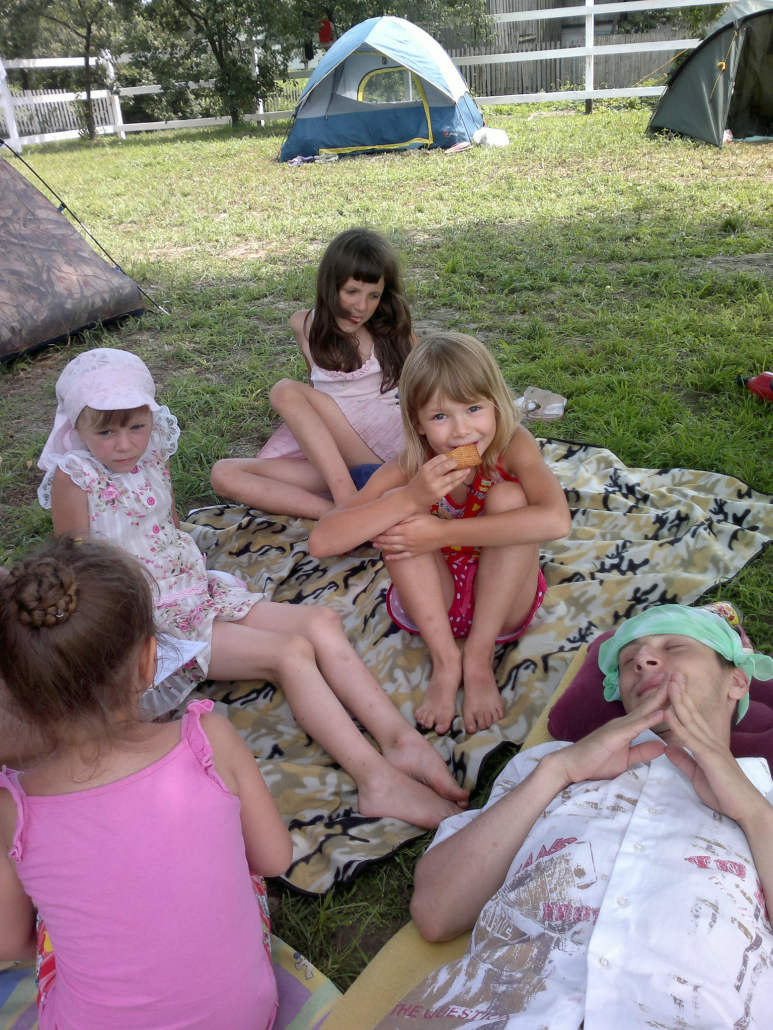
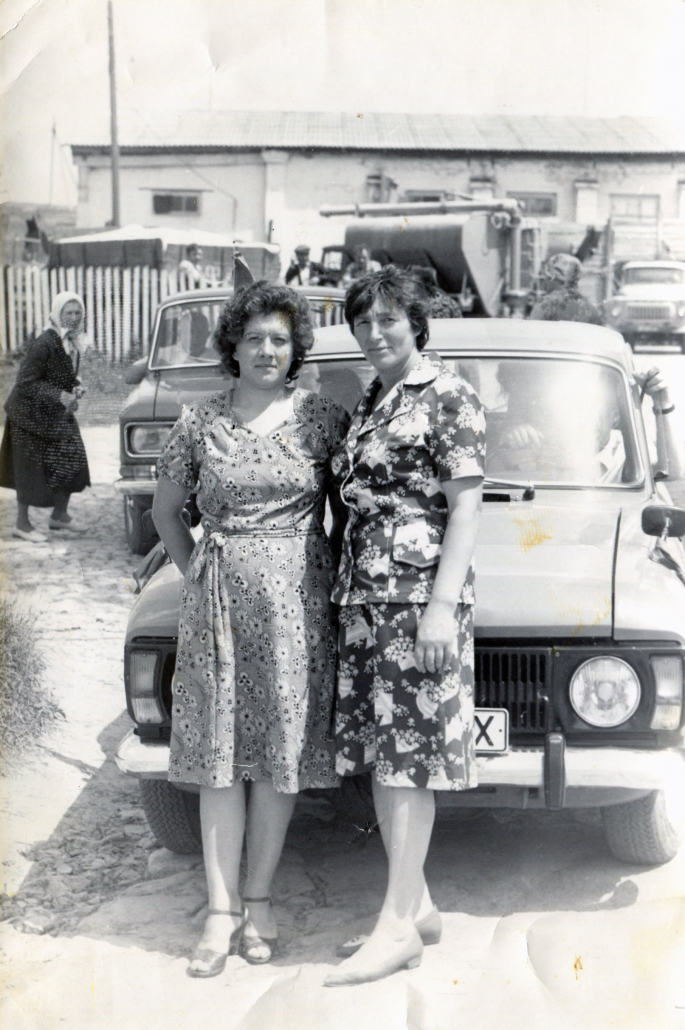
When Svitlana started to work with Marta I was essentially alone and wondering about the future. I had no plans for a future with her, I thought she was married (wasn’t technically true). I never guessed that we would fall in love and our life together would lead to a decision to remain in Guta and, I assume, to be buried there. Svitlana’s work with Marta used materials that eventually would become the foundation for our vacation school. At the same time, her tutoring of Marta marks the start of a major role for Svitlana in Marta’s life. Svitlana remembers our initial interview clearly. Apparently, she was stressed. And she was rather shocked at my informal posture and the informal nature of the interview. What did she expect from a native Californian?
The pictures below are from Svitlana’s family album. In it, you see the birth of Sasha, her father and mother, grandparents and even great grandparents.
In the 5th row, column 1, you see Svitlana’s grandmother. She lived with her grandmother until she was 8 years old in a house on the edge of the village. The life in this house was traditional in rural Ukraine. Her grandfather had a horse and wagon, and together with her grandmother they took turns with other families to herd the milk cows of each family. To this day, Svitlana loves the Ukrainian печь лежанка, a wood burning oven for making bread, cooking food, and with warm shelf where one can lay down and rest. Svitlana learned from her grandmother the wisdom of life, which was imprinted on her soul. She often discusses the values that she learned from her grandmother.
Late summer of 2011 after Marta returned to Moscow, and all the Baha’i friends had left Guta, Sveta was getting ready to return to her village and husband. Nadia suggested that we take some time and relax, and we decided to go to the Totokha site, not far from our home. This site is a location for pilgrimage, the site of an ancient culture according to historians. The location was reputed to be selected in antiquity because of the special energy of the spot— a convergence of energy. Not infrequently people will travel long distances to Totokha, to seek enlightenment, solution to problems and questions, health, relationships and the like.
We went to Totokha on 19 August 2011, both of us wondering about the future with no contemplation of a future together. Yet something seemed to happen, some alignment of lives and energies, and indeed it marks the beginning of our relationship. We were both dealing with difficult situations at home, in the case of Svitlana she divorced from her 2nd husband some years earlier but continued to live in the same house with him— sleeping in different rooms. To people from outside of the ex-Soviet Union, this seems odd, but in this part of the world it was not uncommon that ex-husband and ex-wife continue to live in the same home. They may also not be too particular about describing their relationship to the outside world. A few days after Totokha, l left to Kyiv and Svitlana back to her home with her 2nd husband. I think in discussions with Nadia I mentioned that there was still work that needed to be done, and it was planned that we would meet some weekends to work on the tasks that needed to be done on the house and property.
As for me, I was in the last stages of a divorce that was not going well; the period known as the “year of waiting” to Baha’is. There was no saving this marriage that included a series of issues that were not reconcilable. I might go into some details elsewhere, but let’s say that it involved financial matters and properties, and not being truthful. The legal issues needed to be sorted out. But the marriage was over, and I was beginning to contemplate leaving Ukraine and didn’t want any legal complications.
Both Svitlana and I describe our relationship as fate. Her mother was my neighbor. We didn’t meet on the internet (everyone asks) and we had next to nothing in common— at least on the surface. She was literally the girl next door. Svitlana was a country girl, born and bred in Guta, still strongly attached to her mother and father, still a daughter in the family hierarchy, linked to one place all her life. She was brought up by her grandmother on a collective farm, living a life reminiscent of rural life in the US at the early part of the 20th century. She was one of the village children that took turns herding cows in pastures with her grandmother, and helping her grandfather with his horses. In Guta, at least 3 generations of Svitlana’s family lived in relative proximity, which pre-dates the establishment of the collective farm in the village. Our house, and the home of her parents, was built in the 50s. Most everyone knew everyone else. What could be more distant from this world in Guta than me.
From my birth, I moved from place to place. California, Japan, Hawaii. California, Virginia, Illinois, Haiti, Ivory Coast, Mississippi, Cary, Garner, Sri Lanka, Arnhem, Moscow, Obninsk, St. Petersburg, Kyiv, Guta. Leaving family and friends, learning new languages and cultures, reacting to opportunities to serve, looking for open doors, trying to advance the world order as described in the prophetic visions of Baha’ullah.
What we found, is that our characters matched and we fit together. As if made for each other. So, in spite of warning that the Baha’i community would judge us unfavourably, and the age difference, we agreed to marry, and repeated the Bahá’í verse: “Verily we all abide by the Will of God.”
On 24 November 2012 we were married according to civil and Baha’i law at Totokha. We are both wearing jeans, with God, her parents and son as the only witnesses. To both of us, getting married was the easy part and we didn’t want to emphasise it– especially because we had both been married before more than once. We decided our celebrations would be the anniversary date every year, where our successes would be celebrated. Always the optimists. And, so far (in 2019) we have reason to celebrate every year. And we thank God for giving us the opportunity to meet, because there could be no other explanation.
Our home in Guta was built together with Svitlana. When I first visited Guta, I used to walk the street where I now live, and look at the homes and their location. When I saw the home I eventually bought, I thought: “This would be nice,” and I posted signs and finally asked an employee at the horse breeding farm to ask locally about houses for sale. And, in fact, the employee informed me of the sale of the house where we now live. One of the homes I saw on my visits to Guta was the childhood home of Svitlana.
When I met Svitlana, all the work on the school and facilities had only just begun. I had done a little work on my house, but just enough to make it livable. For example, I remember that the shower and the bathroom were under construction when Nina and her children were in Guta the summer of 2011. So, in reality, Svitlana and I built our nest together. In terms of the facilities for the summer school, the initial work on the bunk house, main hall, and cafeteria were made in consultation with a Baha’i friend (Victor Pavlov). But Sveta doubled the size of the bunk house, doubled the toilet/shower facilities, and was directly involved in all the decisions regarding the landscaping and sports fields. The work on the cafeteria and main hall was completed by Svitlana. Our main house was renovated with Svetlana (actually, at her insistence), as well as the red roofs on both the bunk house, guest house, and main house. Thus, in reality, nearly everything in our Guta home included the direct participation of Svetlana. By the fall of 2011, all the workers and material purchases were controlled by Svitlana. After Svitlana came into my life, my primary contribution was to discuss the plans and strategy and teach Svetlana to use a modern accounting system. I estimate that the costs of materials and construction were reduced by 30 or more percent because of her entrepreneurial spirit, local knowledge, and acumen.
In 2019 Svitlana and I celebrate 8 years together. All good years, and every year better. She often jokes: “Seven years, and we are still in love and happy. Who would have guessed?” My struggle to reach this point was full of tests. I seemed to transition from one scenario to the next without reflection, just reacting to circumstances in my life. From 2004 to 2011, three times I took steps to create a new life, and some permanent decisions were made that I’m happy about, like the flat (Tanya), Marta in Ukriane (Olya M), and Guta, but it was a series of awful tests. When anyone asks me about Ukriane, I always reply how grateful I am for my life in Ukraine. It has tested me deeply, and think of all the benefits I received.
As my marriage with Svitlana developed, it happened without effort. Neither of us had to change in any fundamental way, and I suppose that if I’ve learned anything by all my marriages, it is that we really don’t fundamentally change after a certain age. Mature, improve, become kinder and gentler– one can make improvements– but not change. And if you get married and expect the other to change, it won’t work. After our marriage Svitlana continued to teach school in the local school system, but when the activities of the Virtues Project increased, this activity became important to her and her family. In fact, the whole family is involved, and together we grew to love the children and the project. But at the same time, we don’t need to run this school. We want to do it as a service. It makes us happy.
In the summer of 2016 I retired, and although emotionally it was a roller coaster, professionally and personnally it was one of the best periods of my life. I was able to save a lot of month, get invested in the World Bank retirement program, and end up with a life long pension equal to a good salary in contempary Ukraine. It meant that I didn’t have to work another day if I didn’t want to. So with my marriage, and now a pension and a reasonable income for the rest of my life, I feel very rich and happy.
Svitlana became a Baha’i in 2014 but she didn’t tell her family until recently. And it is only recently that she has read some of the Writings.
In March 2011 a decision was made to develop a social project in Guta – a small picturesque village surrounded by forests and ponds in Boguslav Raion, located 15 km from the district center and 120 km from Kyiv. The meeting was held in my flat in Kyiv and included the Continental Counsellor and many of the NSA members in Ukraine. From the beginning, it was a personal initiative developed according to Baha’i principles and with the blessings of the Baha’i community.
Construction activities took place during 2011-2012 including a dormitory, kitchens and sanitary facilities, a large multi-purpose meeting hall, horse stables and fencing around the pastures and buildings. The project is designed as a non-profit social entrepreneurship with self help components and pricing to cover operating expenses only. In this way, we could offer high quality at low cost, and its operations would be sustainable.
We call the project in English, “The Virtues Project in Guta.” It’s inspiration was created by two Canadian Baha’is (Kavelin-Popovs; virtues project.com) who established a foundation in 1991 and began to ship virtues books and materials world-wide, and two Russian Baha’is who wrote of series of books oriented on helping children to learn and appreciate virtues. Both of these efforts were supported by Baha’i institutions at the international and national level, and both of these efforts make no specific reference to the Faith, either directly or indirectly. Many parents are initially not interested in any kind of religious training for their children, whether it be Baha’i, Christian, or other. But all parents are interested in their children acquiring positive virtues and leading responsible lives, and they fully appreciate the value of such training. And, the virtues that are taught are fully a central goal of the individual Baha’i, and individuals of any faith, as well as individuals not ascribing to any religions group or idea. If our children learn positive virtues, then we have provided a service.
At the same time, it is no secret that Svitlana and I belong to the Baha’i Faith, and that our project was Baha’i inspired. From the Baha’i perspective, it is a social project that “derives meaning, in part, from its relationship to other activities…” (OSED, 26-11-12) The Baha’i community in its Ruhi Program has similar morals training, with more focus on the Writings of the Faith. The interchange of ideas, skills, and methods between the Virtues Project in Guta and the Baha’i Community’s Ruhi program for children is constant.

